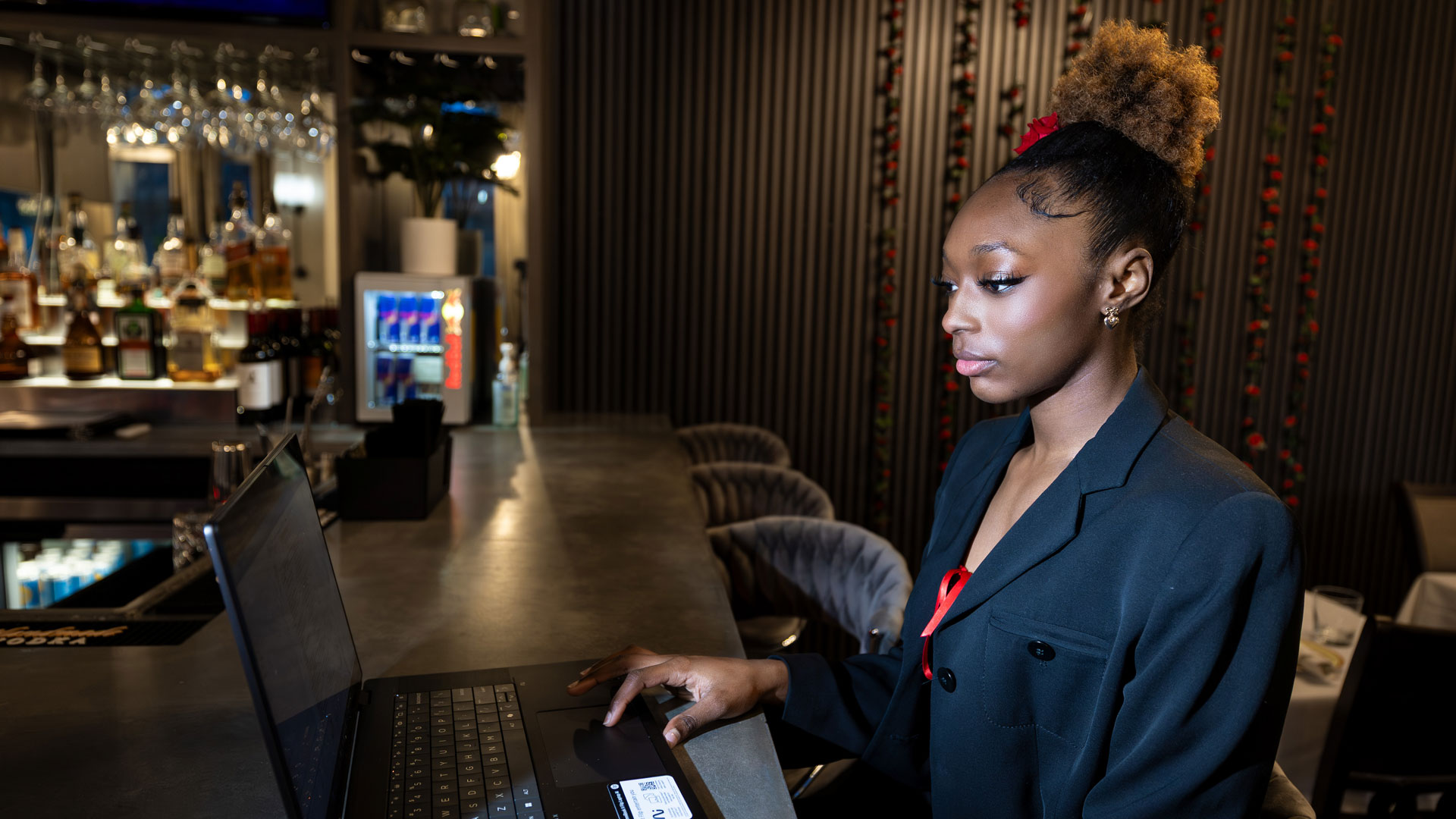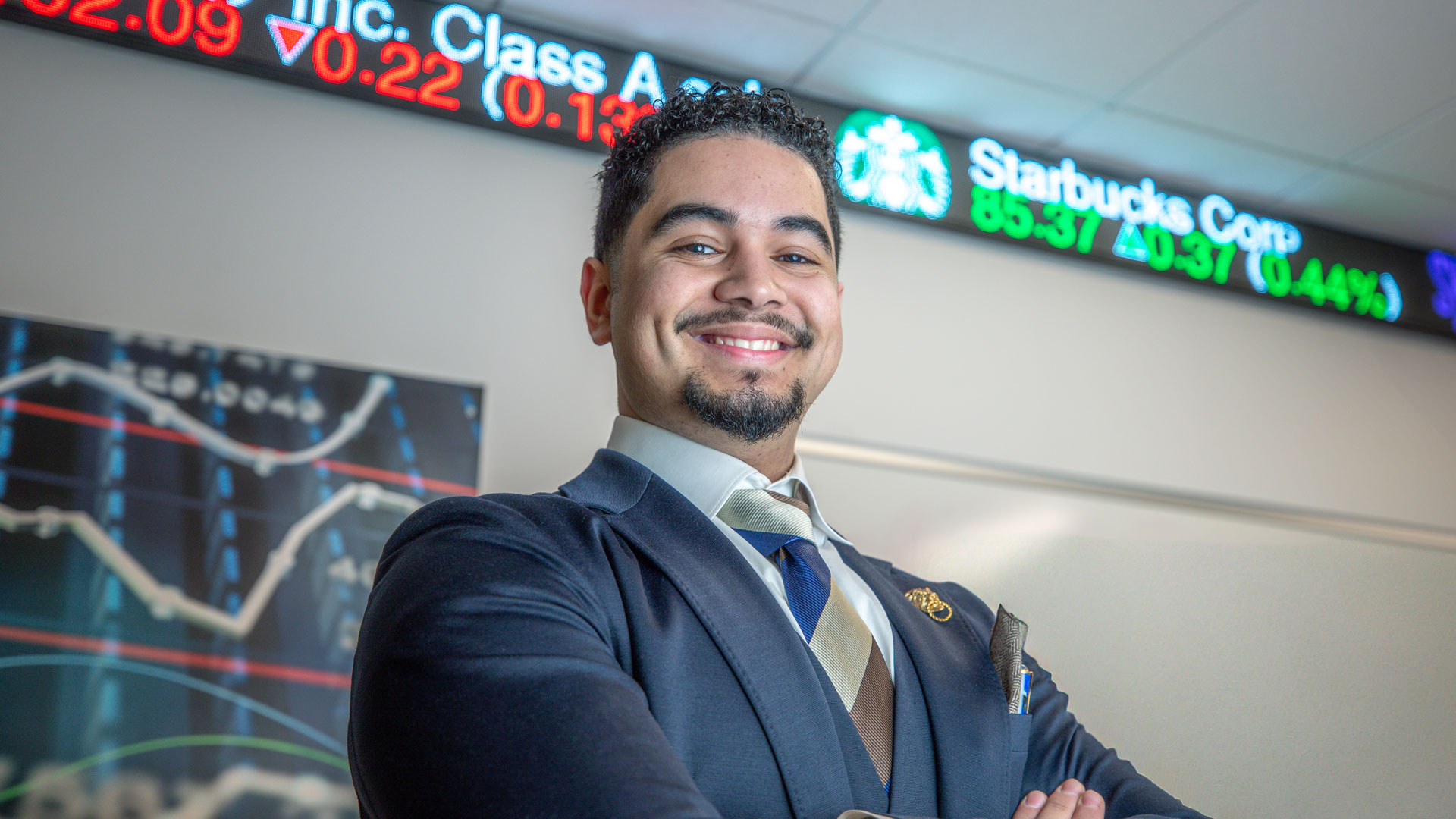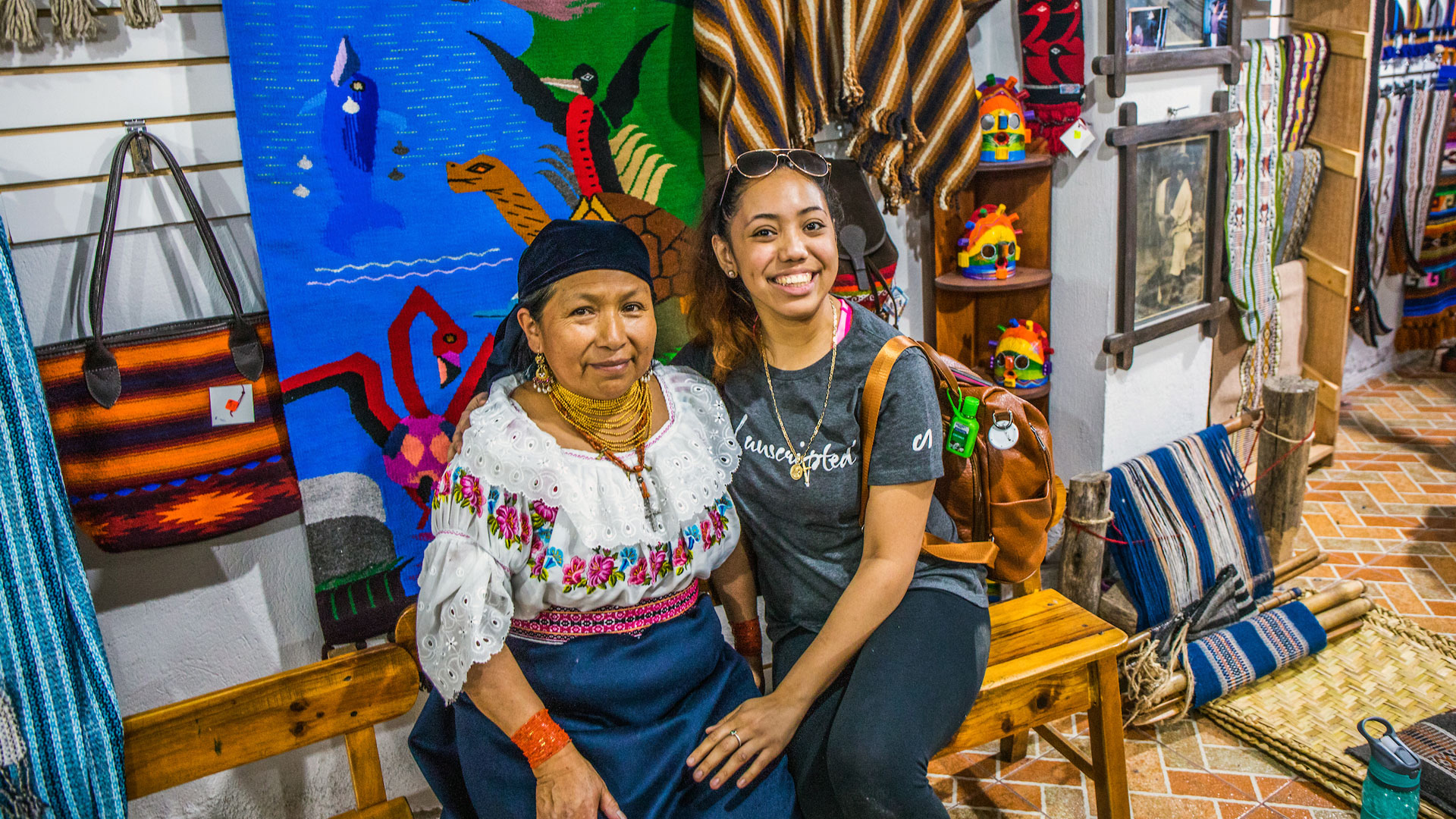Not Just Another Cup of Tea: Hospitality Students Hear from Bigelow Tea CEO
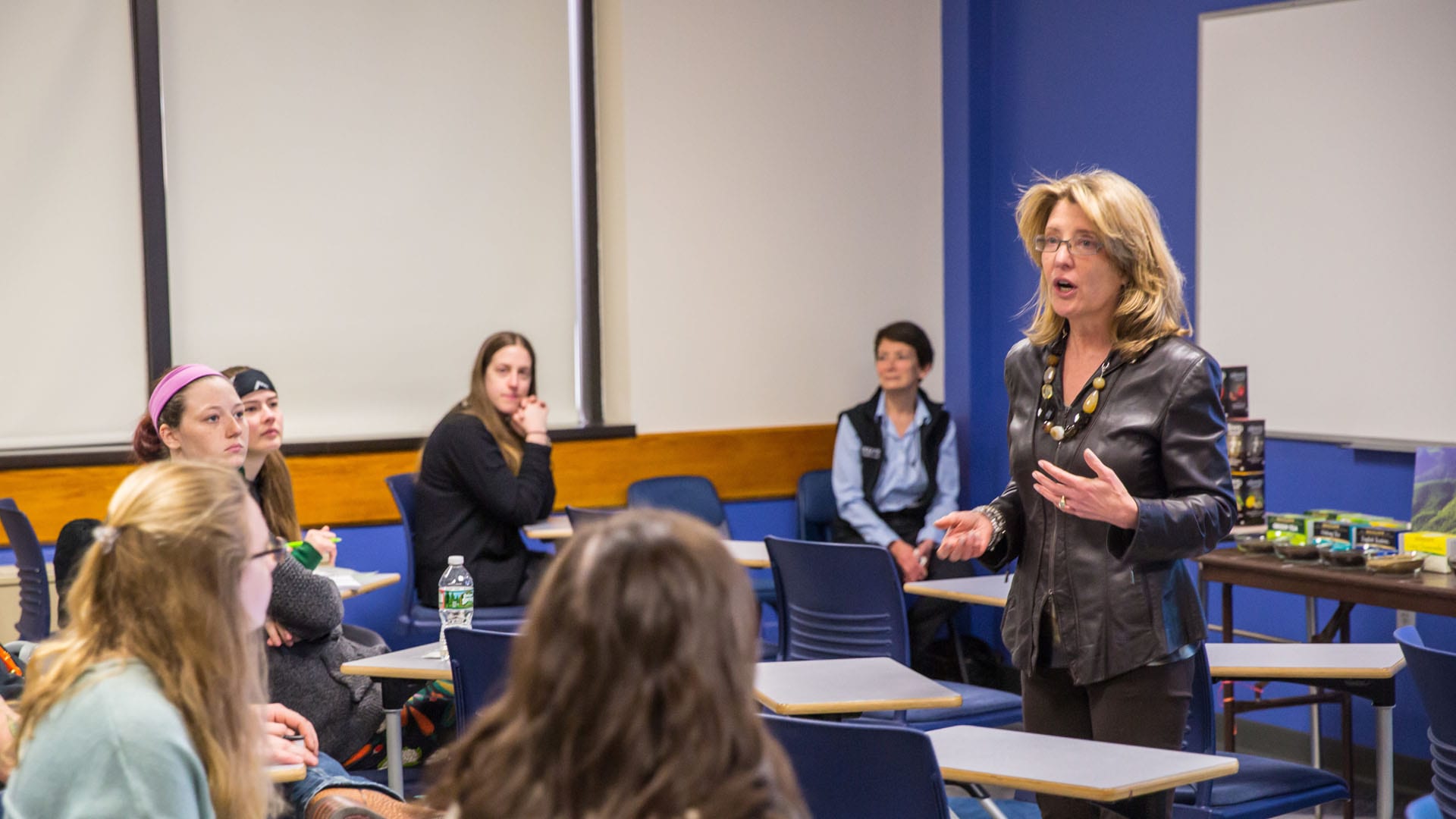
The American consumer has an almost limitless amount of options when they head to the grocery store — so much so that it can be an overwhelming experience. Sometimes, one may even think, “I’ll just buy this brand. What’s the difference?”
Cindi Bigelow is on a mission to change that way of thinking.
As president and CEO of Bigelow Tea, the business her family has owned and operated for more than 70 years based in Fairfield, Connecticut, she knows that consumers have options. But, “for my family, it’s not just another cup of tea.”
From the ingredients Bigelow Tea selects (100% organic bergamot oil in their earl gray), to the sustainable way they source their tea (carefully selected from around the world), even to the way they make their most iconic blend, Constant Comment (said Bigelow: “My parents, who are in their 90s, are still the only ones who put on the lab coats and hair nets and physically make it”), it’s about knowing and maintaining the quality needed to be leaders in the industry and market.
"We’re always changing and evolving based on what our customers want next."
It’s something that College of Hospitality Management students in JWU’s FSM2055 Beverage Appreciation class learned firsthand during a presentation and tea tasting with Bigelow. From Bigelow’s signature line (including their earl gray, green tea and Constant Comment) to their newest ventures (steep by Bigelow, their premium line of organic teas, and Bigelow Benefits, designed to support specific components of well-being), it was clear to students that Bigelow Tea as a whole topped the ranks. And the tea they tasted was only the tip of the iceberg, according to Bigelow: “We’re always changing and evolving based on what our customers want next.”
While Bigelow Tea is undeniably a household name, that’s far from where they began. “When my grandparents started this company, no one wanted our tea,” said Bigelow. “My grandmother tried everything, even hand painting the tea canisters. Sometimes you have to get creative when you don’t have money at first.” When the family noticed that only 1 store in Connecticut was able to sell their tea consistently, they talked to the owner. “They found out that the owner was allowing customers to smell the tea before they bought it. My grandparents immediately realized that’s what was missing and ran with it, including a glass whiffing jar in each case for customers to smell the tea. It took off from there.”
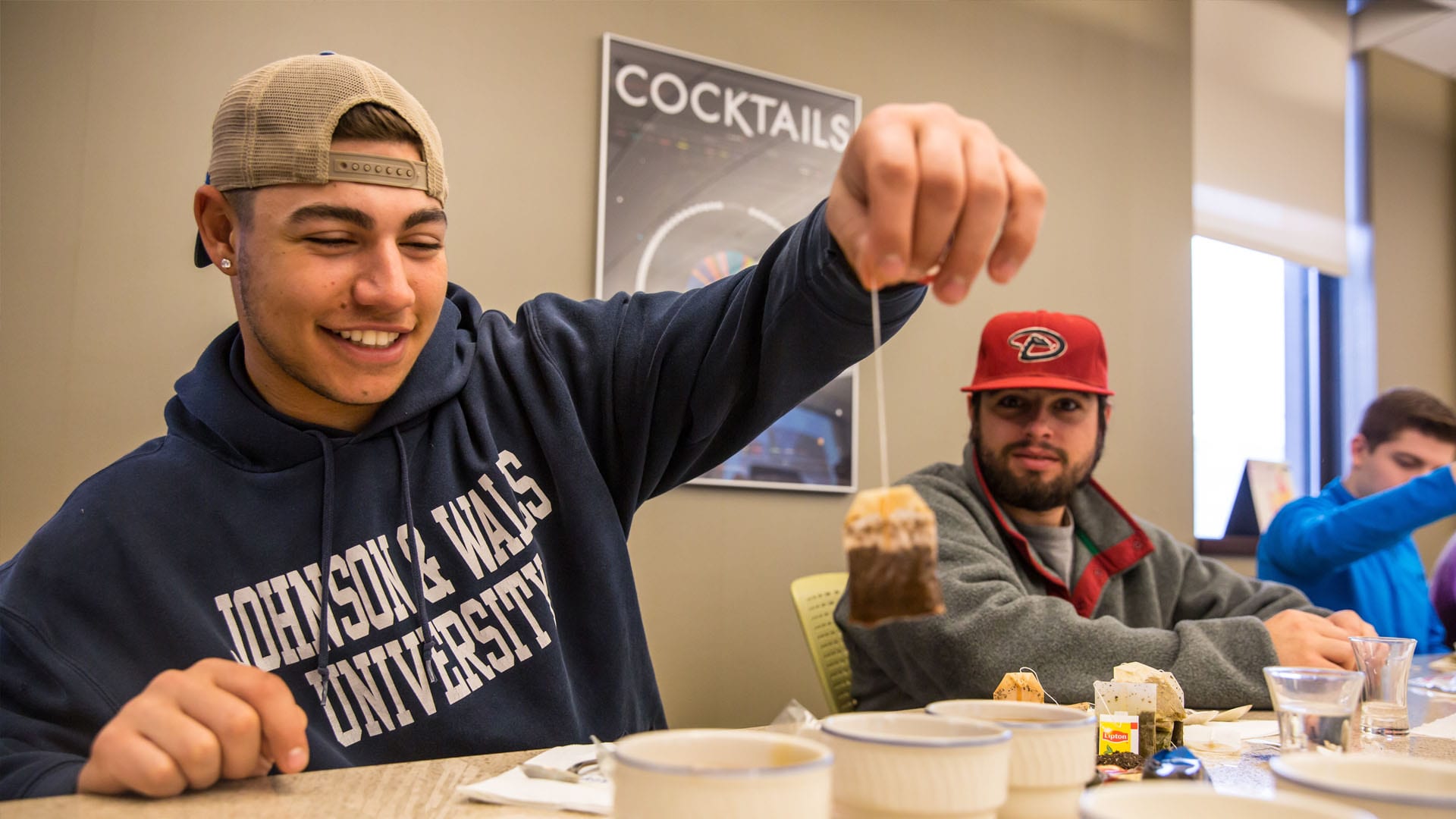
Bigelow herself joined the family business in 1986 and moved into a new job within the company about every 3 years. “The joke was that I couldn’t keep a job,” said Bigelow. “In reality, I was just continuing to reinvent myself.” In 2005, she took the helm as president and CEO, by which point she had a solid foundation of the inner workings of the company, which employs 360 people. Bigelow also gained an understanding of the importance of giving her employees a voice — twice a year, she sits down with every employee to find out what they can improve on as a company. “It’s important to get a holistic view, and this allows us to do just that.”
Bigelow also imparted some advice to students hoping to break into the industry:
- “Working your way up from the ground level like I did isn’t glamorous, but you learn the business and people the best in those positons. There’s nothing better.”
- “There are so many slippery slopes you can take in business — don’t do it. It never pays off.”
- “Never ask your employees to do anything that’s not 100% the right thing to do.”
- “Remember when you’re in a leadership position that you are lucky to be in that positon.”
- “Always create an environment where your employees want to do a good job.”
And when asked the burning questions of what her favorite tea is, Bigelow knows the answer immediately: “We have 150 varieties. It’s like I have 150 family members. I could never pick just one!”
